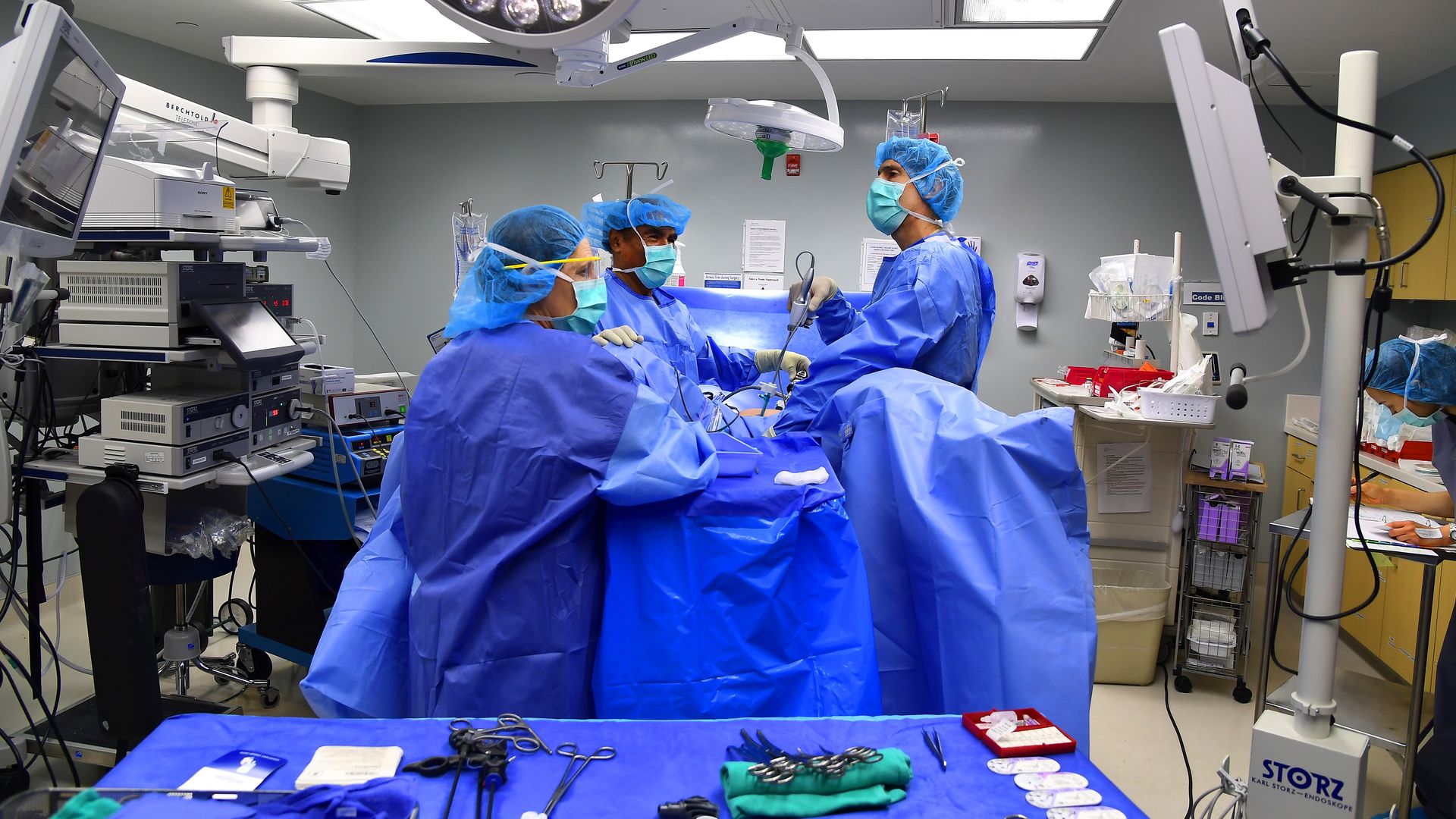Health care's fraud and abuse laws are getting overhauled
Add Axios as your preferred source to
see more of our stories on Google.

Doctors are at the center of changes to self-referral and anti-kickback laws. Photo: Katherine Frey/The Washington Post via Getty Images
The Trump administration is proposing to loosen regulations that prohibit doctors from steering patients insured by federal programs to facilities where they have a financial interest and that outlaw health care companies from offering bribes and kickbacks in exchange for patient referrals.
Why it matters: The industry has long clamored for an overhaul to these laws, which companies say obstruct their goals of providing "value-based care." But critics worry the broad and vague changes could engender more fraud and abuse than there already is.
Driving the news: The Department of Health and Human Services would create new exemptions for the physician self-referral law and the federal anti-kickback statute — decades-old, complex laws that forbid payments that encourage unnecessary care and increase taxpayer costs.
- Hospitals, doctors, nursing homes and other entities would be able to create "value-based arrangements," and those deals could include exchanging bonuses or other types of "remuneration" without running afoul of referral laws.
- For example, under these exemptions, a hospital could provide a nursing home with a behavioral health nurse for certain discharged patients, or a hospital could donate cybersecurity technology to a physician's office.
- Many exemptions already exist, including for organizations called "accountable care organizations" that try to keep a patient's care within a narrow set of hospitals and doctors, but these changes would go much further.
Between the lines: The overarching concern is everyone's definition of "value" is different. How will regulators know whether providers are acting in good faith to coordinate care, or if they are using "value-based care" as a cover to control patient referrals and enrich themselves?
A major exclusion: Pharmaceutical companies, medical device firms, labs and medical equipment makers are cut out from the changes because the federal government is afraid those companies would "misuse the proposed safe harbors."
- Pharma lobbyists, in particular, have pushed hard to change the law so drug companies could directly subsidize drug copays for Medicare and Medicaid patients, even though federal officials have said that practice "masks the high prices those companies charge for their drugs."
- HHS Secretary Alex Azar told reporters the government may consider separate regulations for value-based drug contracts, even though the evidence of those deals' effectiveness is limited at best.
The bottom line: These changes come at the same time that hospitals, physicians, pharmaceutical companies and others are paying out billions of dollars every year in fraud settlements.
- Public comments are due Dec. 31, and if this comment process is anything like the initial requests that asked for guidance, the industry will be heavily involved.
